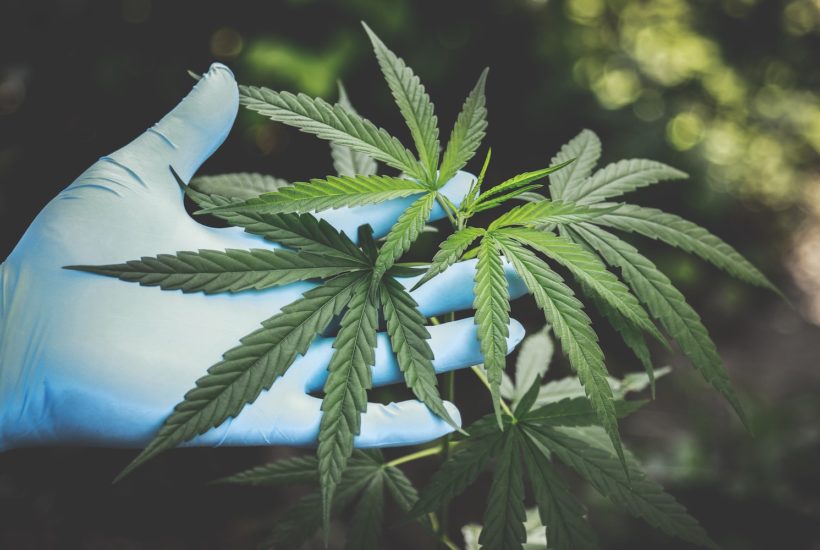Cannabis
Is genetic research the future of the cannabis industry
With global attitudes towards cannabis acceptance trending upwards, Medcann CEO, Jon Ruiz, believes that cannabis is a “phenomenal opportunity.” But simply showing up to the party isn’t enough to reap the rewards of this potential goldmine; it’s like digging around bare handed. Science is currently in fashion and, if Ruiz is to be believed, “the future of cannabis is in genetic research.”

The star that shone brightest during the months of the pandemic in Latin America was Medcann. The cannabis company, created and further developed in the central plains of Colombia, obtained the first quota for processing psychoactive cannabis for export. However, its CEO, Jon Ruiz, said that the firm’s goal is no longer to just grow, and that “the future of cannabis is in genetic research.”
Cannabis research is heading in many directions and the results are in the business news every day, which you can follow by downloading our free companion app, Born2Invest.
How has the coronavirus pandemic turned out for Medcann?
It has been curious because the regulatory advance in Colombia was made faster than one would expect by the quarantine and the fact that officials are not working normally. The Colombian government has granted quotas for growing and processing psychoactive cannabis.
Ruiz said, “We have signed genetic licensing contracts because the fact that Colombia strengthened the seed industry has helped a lot. At the height of the pandemic, we were granted the largest quota of six hectares of psychoactive cannabis. That is a milestone for a government like the Colombian one. So it has gone well, even better than before the regulatory framework.”
Ruiz, however, also highlighted the contrasts of the Colombian scheme, and regrets that the country does not allow the export of dried flowers, as does neighboring Ecuador, because “that is an opportunity that is a shame not to take advantage of. Because of the low cost of production and sustained employment it generates, thousands of hectares will be lost because of this.”
With decades of distinguished knowledge about cut flowers worldwide, Ecuador has benefited from its project to regulate the use of hemp during the pandemic, and many countries in the region are opening up to the market.
“Peru, for example, is about to bring out the regulatory framework and is a copy of Colombia,” said Ruiz. “I think more and more countries are understanding the potential and regulating.”
“Cannabis may also play a role in certain COVID-19 side effects related to pain and inflammation,” he said, “and it has become very fashionable for countries to want to compete with analytical and research capacity.”
Don’t dig a gold mine with bare hands
The first guy who discovered a gold mine had to dig with his hands until a guy came along and sold him a shovel. The industry is starting to evolve; in cannabis, it was once fashionable to just rock up, but now it is better to hold a passport. “It’s not just about growing cannabis to compete among breeders, that’s all very well and it’s going to be done, but this has to be based on medical evidence. At Medcann, we hold the key to low cost because we’ve gone outdoors.”
Whoever is registered as a supplier can do it. “That has opened up a line of business for us that we had developed because part of our future for research has allowed us to make agreements with partners in Canada, and we are dealing with several contracts in Spain. I would say that we took advantage of the opportunity.”
How did the market behave during the pandemic?
During the pandemic, there was actually a shortage of product. Ruiz added, “I think there is less and less prejudice, fortunately, and more and more understanding, and it’s going to be (the industry) a phenomenal opportunity because now everything that smells of research is in fashion and cannabis is going to take advantage of that.”
“We are very clear on our strategy that it is not so much about growing large hectares. Why invest in land if there are a lot of people who have land and are willing to grow your genetics?” he continued.
The same goes for extraction
“The future is going to be is in genetic research,” Ruiz said, and “not just to increase THC content—although that may be one—but the ultimate goal is that genetic development will be based on the knowledge you have from medical research.”
Steve Dale, the founder of Medcann, said: “I dream of taking away all the pain with a dollar a day.” With the cost of production in Colombia, that could be achieved.
__
(Featured image by Aphiwat chuangchoem via Pexels)
DISCLAIMER: This article was written by a third party contributor and does not reflect the opinion of Born2Invest, its management, staff or its associates. Please review our disclaimer for more information.
This article may include forward-looking statements. These forward-looking statements generally are identified by the words “believe,” “project,” “estimate,” “become,” “plan,” “will,” and similar expressions. These forward-looking statements involve known and unknown risks as well as uncertainties, including those discussed in the following cautionary statements and elsewhere in this article and on this site. Although the Company may believe that its expectations are based on reasonable assumptions, the actual results that the Company may achieve may differ materially from any forward-looking statements, which reflect the opinions of the management of the Company only as of the date hereof. Additionally, please make sure to read these important disclosures.
First published in La Marihuana, a third-party contributor translated and adapted the article from the original. In case of discrepancy, the original will prevail.
Although we made reasonable efforts to provide accurate translations, some parts may be incorrect. Born2Invest assumes no responsibility for errors, omissions or ambiguities in the translations provided on this website. Any person or entity relying on translated content does so at their own risk. Born2Invest is not responsible for losses caused by such reliance on the accuracy or reliability of translated information. If you wish to report an error or inaccuracy in the translation, we encourage you to contact us.

-

 Markets1 week ago
Markets1 week agoWeather-Driven Supply Outlook Lifts Coffee Markets in Brazil and Vietnam
-

 Business6 days ago
Business6 days agoTopRanked.io Weekly Affiliate Digest: What’s Hot in Affiliate Marketing [Best Technology Affiliate Programs]
-

 Fintech2 weeks ago
Fintech2 weeks agoFintech Alliances and AI Expand Small-Business Lending Worldwide
-

 Business1 day ago
Business1 day ago2.5 Billion People Watch Quiz Shows Every Day. Masters of Trivia (MOT) Is Letting Them Compete
























